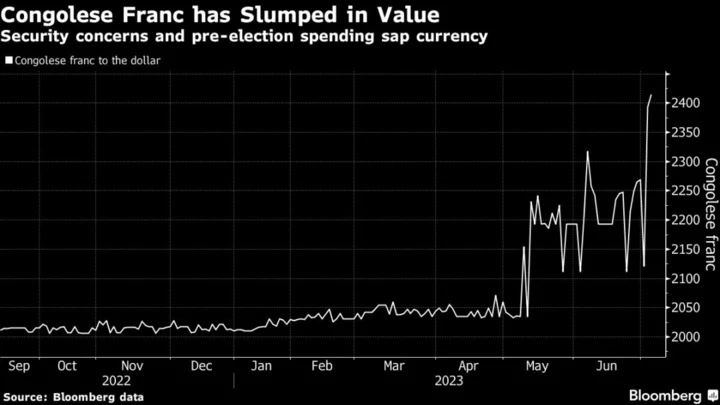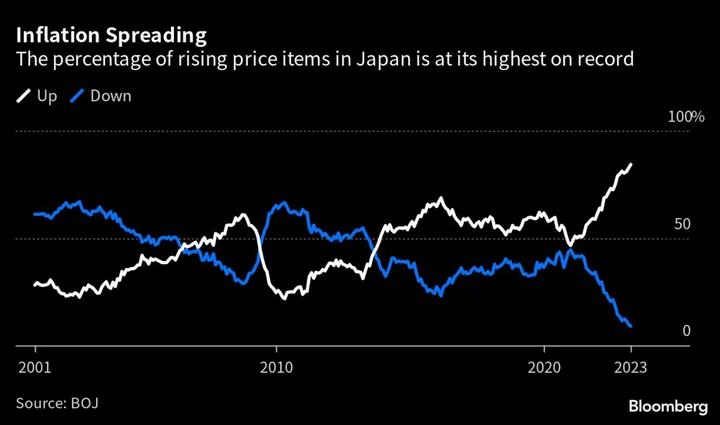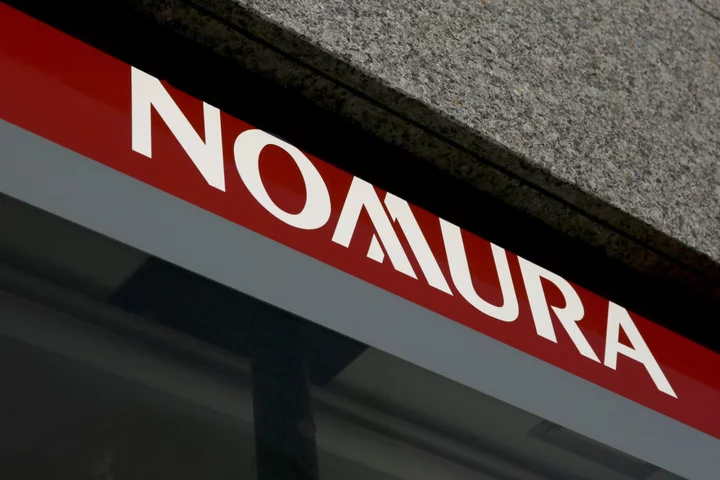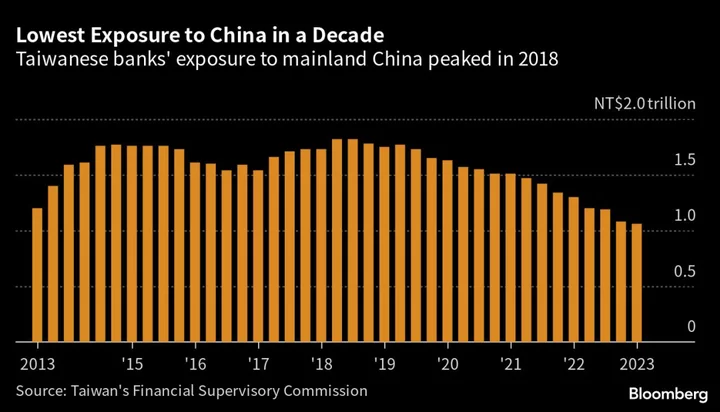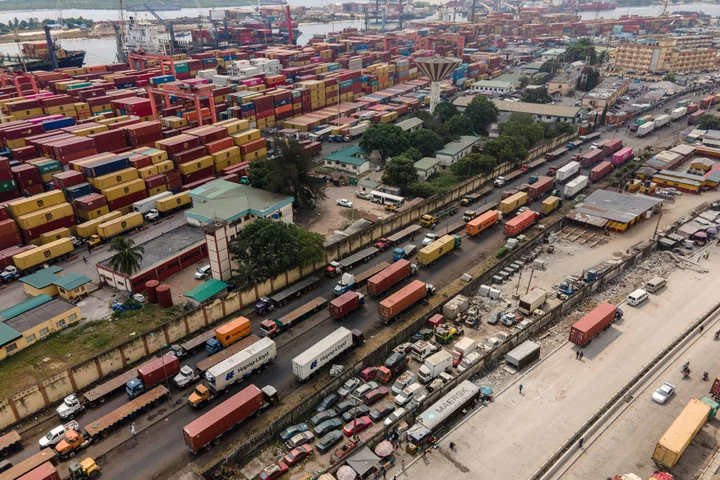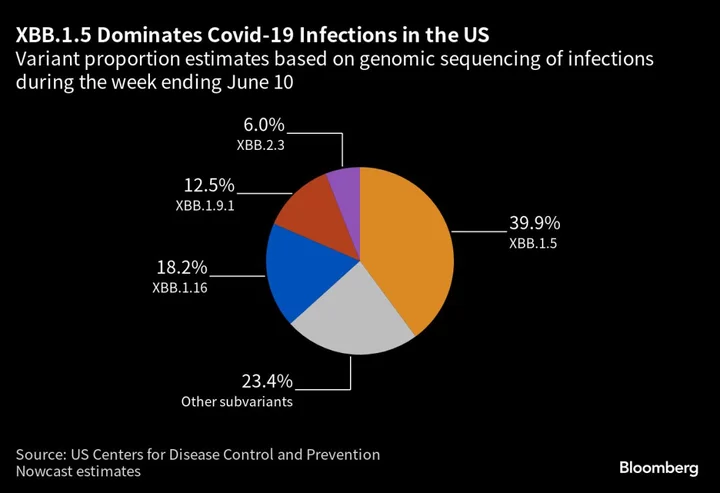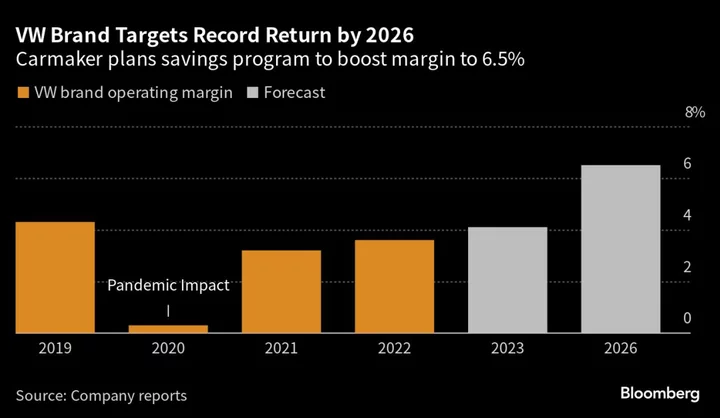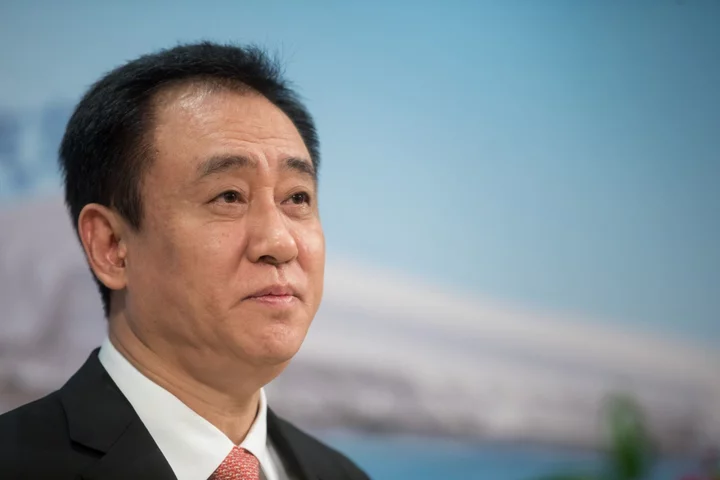The value of Democratic Republic of Congo’s currency continues to slide as security and pre-election spending, coupled with lower-than-expected revenues, put pressure on the exchange rate with the dollar.
The congolese franc has lost more than 20% of its value against the US currency since the beginning of the year, dropping from about 2,000 francs to more than 2,400 last week, according to data compiled by Bloomberg.
Recent central bank interventions including an interest rate hike and increased franc reserve requirements for commercial banks have failed to stop the depreciation. On the streets of Kinshasa on Tuesday, some money changers offered 2,550 francs per dollar.
Congo’s economy grew 8.9% last year and the International Monetary Fund projects a strong 6.8% increase in 2023, buoyed by expansion in mining, particularly copper.
But the government’s revenue projections look to be overly optimistic, according to the IMF.
“The government’s revenue shortfalls and rapid spending contributed to a deterioration of the external balance, excess domestic currency liquidity, exchange rate depreciation, and persistent inflation,” the Washington-based lender said in a review of its loan program with Congo published last week.
Spending in the lead-up to elections scheduled for December and government expenditures on a series of violent conflicts in eastern Congo, as well as speculation by money changers are all contributing to the franc’s slide, five bankers interviewed by Bloomberg over the past three weeks said.
“If you look at the near-term outlook on the DRC, I don’t see how this will stop,” Willy Mulamba, the president of Congo’s banking association said by phone Friday.
Government spending on salaries for employees, military and internal debt has flooded the market with francs, according to Mulamba. But most transactions above $100 are done in dollars, so people often change their money immediately, he said. More than 80% of bank deposits are in dollars, he said.
“We’re receiving increasing pressure from our clients because we are not able to provide enough dollars so they can meet their obligations,” Mulamba said.
Congo’s poorest, who use the franc for small purchases, bear the brunt of the depreciation. As the franc’s value falls the cost of food staples is rising. Prices for food and fuel are already higher due to widespread inflation around the globe. Consumer prices rose 21% in the twelve months through June 24 in Congo, according to the central bank website.
Malangu Kabedi Mbuyi, the central bank governor, urged Congo’s council of ministers on Friday to work with the bank to coordinate monetary and budget policies to reduce the exchange rate and inflationary pressures. Kabedi Mbuyi also reminded currency traders of recent central bank rules prohibiting the publication of the exchange rate in public along the street, in an attempt to ward off an erosion of confidence in the franc.
In the first quarter of 2023 the central bank sold $100 million of its reserves, which, coupled with tax payments by Congo’s copper miners, slowed the franc’s slide slightly, according to the bankers and the IMF.
In May the central bank eliminated a 2020 rule prohibiting commercial banks from charging more than a 2.5% margin above the official exchange rate. This helped reduce the spread between the official rate and the parallel market, which had grown to 14% in March, according to the IMF.
Last month the central bank increased its benchmark interest rate to 11% from 9% and ordered commercial lenders to keep 10% of franc deposits in reserves as francs, up from 0%.
The reserve requirement should mop up about 300 million francs ($130 million) of “structural excess liquidity,” according to a plan by the government and central bank published by the IMF last week.
If that doesn’t work, the central bank is ready to further raise franc reserve requirements for banks and increase its key rate, according to the plan. The rate hike will likely be another 200 basis points, according to a person with direct knowledge of the talks.
But that won’t do much if the government doesn’t control spending in the lead up to December’s elections, the five bankers told Bloomberg.
“My expectation for the second half of the year, with all the elections that will be prepared and all the people that have to be pleased in the provinces, the population, and all the projects that have to be fast-tracked to show something, you will have a very strong devaluation of the Congolese franc,” a banker who declined to be named for fear of retaliation said.
Author: Michael J. Kavanagh

